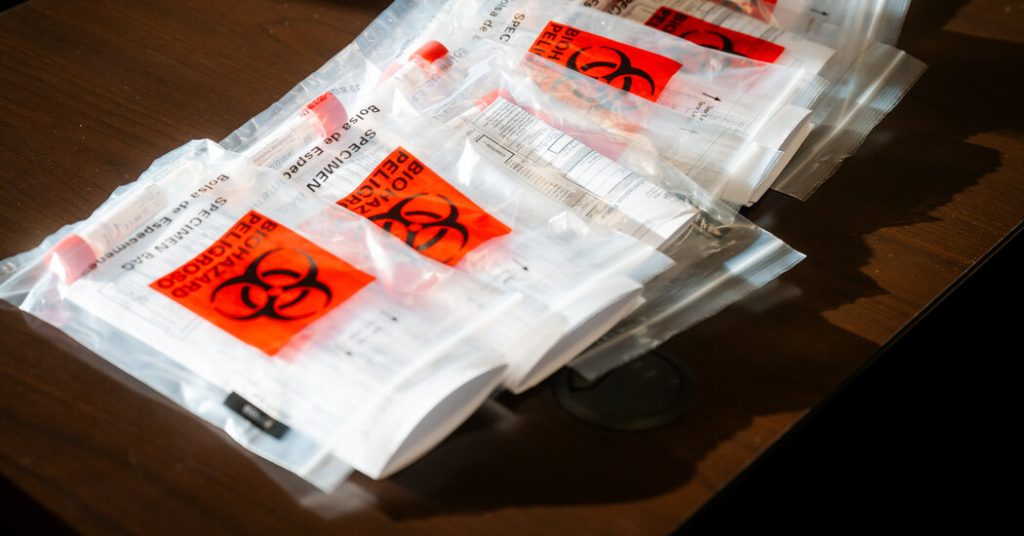A Tragic Reminder: Unvaccinated Person Dies in New Mexico as Measles Outbreak Grows
State health officials in New Mexico reported a devastating development on Thursday: an unvaccinated individual who recently passed away has tested positive for measles. This death may mark the second fatality linked to a rapidly expanding outbreak that originated in West Texas. While measles was detected in the deceased, authorities have not yet officially confirmed it as the cause of death. The person did not seek medical care before their passing, highlighting the dangers of delaying treatment for this highly contagious and potentially deadly disease.
The announcement comes just over a week after a child in Gaines County, Texas, succumbed to measles—a tragic milestone that marked the first measles-related death in the United States in over a decade. The outbreak has now spread to neighboring Lea County, New Mexico, where 10 cases have been reported, involving six adults and four children. All of these individuals were either unvaccinated or had an unknown vaccination status. While the New Mexico cases have not been officially linked to the Texas outbreak, health officials suspect a connection given their proximity to the epicenter of the infection.
A Trial by Fire for Health Secretary Robert F. Kennedy Jr.
The unfolding measles outbreak has become a critical test for Robert F. Kennedy Jr., the new Secretary of Health and Human Services. A well-known vaccine skeptic, Kennedy has faced intense scrutiny for his response to the crisis. Unlike his predecessors, who consistently and strongly endorsed the safety and efficacy of vaccines, Kennedy has taken a more equivocal stance. He has described vaccination as a "personal choice" while also touting unproven treatments like cod liver oil, a position that has drawn sharp criticism from the scientific and medical communities.
Public health experts argue that Kennedy’s muted support for vaccination undermines efforts to combat the outbreak and protect vulnerable populations, particularly children and immunocompromised individuals. They emphasize that vaccines, specifically the measles, mumps, and rubella (MMR) vaccine, are the most effective tool against measles, preventing over 97 percent of infections when two doses are administered. Kennedy’s ambiguous messaging has only fueled concerns about his ability to lead the nation through this and future public health challenges.
The Measles Outbreak: A Preventable Crisis
As of Tuesday, the measles outbreak in West Texas had infected nearly 160 people, with 22 requiring hospitalization. This surge in cases underscores the fragility of public health when vaccination rates fall below the threshold needed for herd immunity. Measles is an extremely contagious virus that spreads through respiratory droplets when an infected person coughs, sneezes, or even breathes. On average, one person with measles can infect up to 18 others if they are unvaccinated or have weakened immune systems.
The symptoms of measles typically emerge within one to two weeks of exposure and can progress rapidly. Initially, they include a high fever, cough, runny nose, and red, watery eyes. A distinctive rash then appears, starting on the face before spreading to the neck, torso, and other parts of the body. While most people recover within a few weeks, measles can lead to severe complications, such as pneumonia, brain swelling, and long-term disabilities like blindness, deafness, or intellectual impairment. According to the Centers for Disease Control and Prevention (CDC), one or two out of every 1,000 children who contract measles will die from the disease.
Measles: A Preventable Yet Potentially Deadly Disease
The measles virus not only causes immediate harm but also weakens the immune system, leaving individuals more vulnerable to other infections for years after recovery. Before the widespread use of the MMR vaccine, measles was responsible for up to half of all infectious disease deaths in children, according to a 2015 study. This stark reality underscores the critical role of vaccination in saving lives and preventing needless suffering.
New Mexico health officials have urged residents to get vaccinated as soon as possible. Dr. Chad Smelser, the state epidemiologist, issued a poignant warning: “We don’t want to see New Mexicans getting sick or dying from measles.” His message echoes a broader call to action from public health experts nationwide, who are urging people to prioritize vaccination and trust the overwhelming scientific evidence supporting its safety and efficacy.
A Call to Action: Vaccination Saves Lives
As the measles outbreak continues to spread, the need for collective action has never been more urgent. The deaths in New Mexico and Texas serve as heartbreaking reminders of the consequences of not vaccinating. While measles is a preventable disease, its resurgence in the United States highlights the challenges posed by vaccine hesitancy and misinformation.
Health officials are urging individuals to seek out the MMR vaccine, which remains the most effective way to protect against measles. Two doses of the vaccine provide more than 97 percent protection against the disease, safeguarding not only the individual but also the wider community. By choosing to vaccinate, people help maintain herd immunity, which is essential for protecting those who cannot be vaccinated due to medical reasons, such as young infants or individuals with compromised immune systems.
The current outbreak is a stark reminder of the power of vaccines to prevent disease and save lives. It also highlights the importance of leadership in public health, as well as the need for clear, science-based communication to combat misinformation and inspire confidence in vaccines. As the situation in New Mexico and Texas continues to unfold, one thing is clear: vaccination is not just a personal choice but a critical act of responsibility that protects us all.


